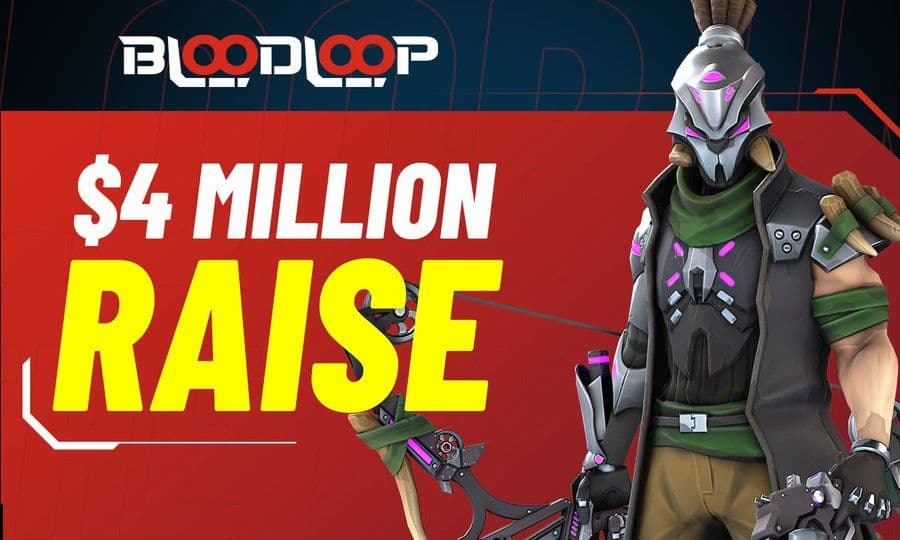Extraction shooters are having a moment. With games like Escape from Tarkov building massive cult followings and newcomers like Arc Raiders generating buzz, it’s no surprise that more studios want in. But despite the growing interest, most attempts to break into the genre fall flat - sometimes before they even make it out of early access or a closed beta.
The truth is, extraction shooters are hard to make. Really hard. And a lot of developers underestimate just how much depth, planning, and risk-taking it takes to make one that actually works.

Why Do Most Extraction Shooters Fail?
A Genre That Doesn’t Play Nice with AAA Design
At their core, extraction shooters go against a lot of what big studios have spent years perfecting. Modern AAA design is all about accessibility, constant progression, and avoiding frustration - but extraction shooters thrive on tension, unpredictability, and meaningful failure. That alone creates a huge disconnect.
The genre is built around a simple loop: go in, loot, survive, extract - or lose everything. The most important word there is “lose.” The fear of losing your gear is what gives these games their teeth. Without that, there’s no tension, and without tension, you might as well be playing a looter-shooter or a battle royale.
A lot of games miss this completely. Take Call of Duty’s DMZ mode, for example. It had a cool premise and some smart ideas, but the stakes were almost nonexistent. If dying only costs you a gun and a few minutes of time, there’s no reason to play differently - no reason to care. That’s fine for casual players, but for an extraction shooter to work, loss has to matter.

Call of Duty
Why Risk and Reward Needs to Hurt (in a Good Way)
What makes extraction shooters special is the sense that every decision could make or break your run. Do you chase the big loot on the other side of the map, or play it safe and get out early? Do you trust that random player waving a flashlight at you, or shoot first and ask questions later?
These moments only work when the consequences are real. Games that pull their punches - either by softening loss or giving out too many handouts - end up feeling flat. You need to feel the highs and lows. That’s why Tarkov still stands out despite all its issues. When you survive a high-stakes raid with a backpack full of loot, it feels like a genuine victory. When you die five seconds into a run and lose hours of gear, it stings - but you keep playing, because the payoff is worth it.

Escape From Tarkov
Players Need a Reason to Keep Coming Back
Just as important as risk is purpose. Good extraction shooters don’t just throw you into a map and expect that to be enough. There needs to be structure - something to work toward. Whether it’s quests, narrative beats, or player-driven goals, there has to be a reason you’re risking your gear beyond just grabbing loot for its own sake.
That’s where games like Marathon seem to miss the mark. Based on everything shown so far, its maps look empty, its objectives unclear, and the world doesn’t feel alive. Without that sense of place or progression, players are just running in circles - and it’s hard to stay invested when you’re not even sure what you’re working toward. Add in the fact that it’s launching with only three maps and no ranked mode, and it’s easy to see why a lot of players are skeptical.
Compare that to something like Tarkov, where even just learning the maps takes dozens of hours, or Arc Raiders, which - from the outside looking in - seems to understand the value of player-driven stories and in-game interaction. The use of VOIP, the third-person perspective, and a more approachable gameplay style show that it’s trying something different while still respecting the genre's roots.

Marathon
This Is Not a Casual Genre - And That’s OK
One of the biggest traps developers fall into is trying to make extraction shooters appeal to everyone. But this genre isn’t meant to be casual. It’s not supposed to be easy. Players who love extraction shooters want challenge, friction, and systems that aren’t immediately obvious. The satisfaction comes from figuring it out, surviving, and learning through trial and error.
When studios water that down in the hopes of reaching a wider audience, they lose what makes the genre compelling in the first place. There’s already a massive market for fast-paced shooters with minimal downtime. If a studio isn’t ready to lean into what makes extraction shooters different - the tension, the loss, the learning curve - they might be better off making something else entirely.
What’s promising about Arc Raiders is that it looks like it’s finding that middle ground. It offers a more streamlined experience without sacrificing what matters: challenge, atmosphere, and emergent gameplay. It might not be for everyone, but it knows who it’s for - and that’s key.

Arc Raiders
The Almosts - When Good Ideas Don’t Stick
Not every game that stumbles out of the gate does so because it completely misunderstands the genre. In some cases, the pieces are all there - they just don’t come together, or they fizzle out before finding their footing.
The Finals is a good example. When it dropped, it had serious momentum. The destructible environments, fast movement, and dynamic team-based combat offered something different in a space dominated by slower, more tactical extraction games.
And while it wasn’t a pure extraction shooter, it flirted with some of those elements. But the hype faded fast. Whether it was a lack of long-term content, unclear identity, or player fatigue, The Finals just couldn’t hold on. It’s not a bad game - far from it - but it’s a reminder that grabbing attention is only half the battle. Keeping players around is the real test.

The Finals
Blockchain Gaming's Half Baked Attempts
Then there are projects like Shrapnel and Deadrop, both of which came in swinging with big names and even bigger ambition. Shrapnel leaned heavily into blockchain elements, which instantly narrowed its audience and invited skepticism from traditional gamers. Despite impressive visuals and some interesting design ideas, the focus on NFTs and tokenized assets made it feel more like a tech demo or investment pitch than a game grounded in player experience.
Deadrop had the ingredients for success: a flashy reveal, popular streamer Dr Disrespect, and a bold pitch blending FPS action with web3. But in classic “too much, too soon” fashion, the project crumbled before it ever left early access. Midnight Society’s reliance on its founder’s star power proved shaky ground, especially after Doc’s scandal forced a very public exit.
Without its main draw and with investor confidence waning, the studio couldn’t keep the lights on. It’s a disappointing end to what once looked like a genuinely fresh take on the genre - proof that buzzwords and blockchain can’t carry a game if the foundation isn’t rock solid.

Shrapnel
The Road Ahead for Extraction Shooters
At this point, it’s clear: most studios diving into the extraction genre just don’t get it. They either try to play it safe or treat it like a repackaged battle royale, stripping out the very things that make extraction shooters worth playing in the first place. And players can tell. A lack of tension, toothless penalties, and shallow objectives don’t just miss the mark - they miss the point entirely.
Still, there’s hope. Games like Escape from Tarkov have shown what’s possible when a team really commits to the vision, and Arc Raiders looks like it’s learning from the right places. It’s not about being hardcore for the sake of it - it’s about making every choice matter, every raid feel like a risk, and every success actually mean something.
Extraction shooters aren’t supposed to be for everyone. And that’s exactly why they’re special. The sooner developers stop trying to turn them into mass-market crowd-pleasers, the sooner we’ll start seeing more games that actually push the genre forward. Until then, we’re going to keep getting half-measures that look the part but forget what makes this style of game hit so hard when done right.



